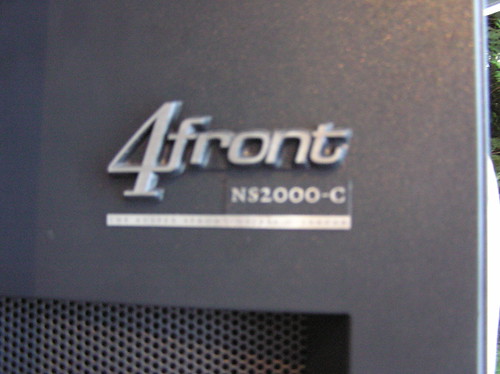Then some innovative folks realized that access to a hard drive would become slower than access over a network and the slide away from direct attached storage to network attached storage began.
Directly or indirectly, that shift was echoed in this year's launch of Amazon's S3 web service - storage on a dime (well, on fifteen cents).
Today I had an amazing suprise when I got home from work. My brother has been preparing to paint the exterior of our house and while in the area he goes bargain hunting, both on Craigslist and Live Expo (I'll refrain from my normal rant about local listings at this point.) In the back of his pickup was a huge black cabinet - an Auspex NetServer 2000. This is a 700GB storage server that was wicked cool back in the day. It could have two additional storage nodes attached to get up to 4.5TB - all for the measly sum of $70,000. And it's in my brothers pickup. And he snagged it for free. For free. Of course, it took three people to heft it into the truck and we have absolutely no idea what to do with it, but my gawd this is cool.
Among available NAS designs, only the Auspex 4Front NS2000 (Auspex NetServer 2000) series of content servers uses both approaches, making it the most advanced NAS product design available. In this design, each of three I/O nodes has two Intel processors. Each processor runs specialized real-time software called the DataXpress kernel. One I/O node processor, called the Network Processor (NP), manages highly reliable customized software that controls all network protocol and caching functions. The other I/O node processor, called the File and Storage Processor or FSP, handles file system processing and storage processing. This design, called Functional Multiprocessing (FMP), allows network processing for a second I/O to occur in parallel with data retrieval for the first I/O. The FMP design provides advantages over both nonparallel single processor and Symmetric Multipro-cessing (SMP) designs that handle I/O activity in serial.
This whole discussion of a processing node sounds very cool - kernels, multi-processors, parallel operations - very advanced.
If anybody wants some of that high tech magic, let me know because I have a couple hundred pounds of it in a pickup in my driveway.
